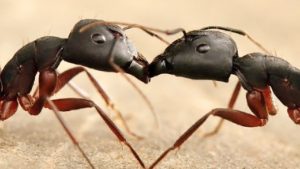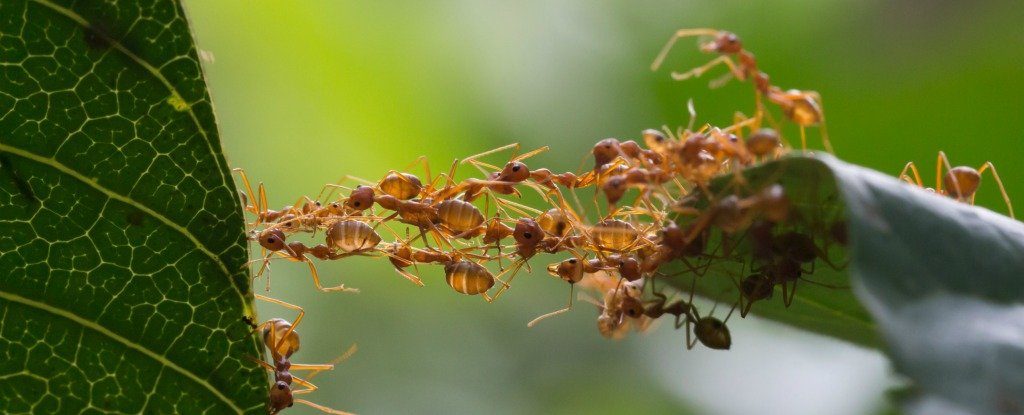 Ancient wisdom tells us to “Go to the ant, thou sluggard; consider her ways, and be wise: which having no guide, overseer, or ruler, provides her meat in the summer, and gathers her food in the harvest.” (Proverbs 6:6-8)
Ancient wisdom tells us to “Go to the ant, thou sluggard; consider her ways, and be wise: which having no guide, overseer, or ruler, provides her meat in the summer, and gathers her food in the harvest.” (Proverbs 6:6-8)
Conventional wisdom tells us that two heads are better than one. Yet, on an individual level two heads will often butt — and we are told that when resources are scarce, competition is better than collaboration.
In a recent study published by Nature, a biologist looked to the ant to help understand how cooperation may have played an important role in the development of civil societies.

“You would think, if you pair similar individuals from a single species, their function would be redundant. If anything, there should be competition between individuals,” says Daniel Kronauer, the Stanley S. and Sydney R. Shuman Associate Professor. However, in the recent study published in Nature, Kronauer shows that group living confers immediate benefits, even among genetically identical individuals.
Over a 45-day period, Kronauer’s team monitored clonal raider ants (Ooceraea biroi) in groups ranging in size from 1 to 16 individuals. They observed that larger groups produced more offspring and experienced greater stability than smaller groups. The bigger groups also exhibited a greater division of labor: even though the ants were extremely similar, group living somehow prompted the insects to specialize in particular tasks.
Specialization isn’t the only advantage of living in a group, however. In developing a mathematical model, the researchers were able to determine, among other things, that increased group size led to increased stability, regardless of whether the ants divided their responsibilities. “You don’t need specialization to see an effect, but with specialization the effect becomes stronger,” says Kronauer.
Results from both the ant observations and the model indicate that individuals benefit from group living even when those groups are quite small — a finding that has significant implications for understanding the development of social behavior.

“It’s easy to see how individuals work together in more complex societies, such as those with queens and workers, because they have distinct roles. But that’s not how insect societies started out,” says Kronauer. “This research shows that very simple societies can have an evolutionary advantage over individuals living by themselves — which provides a stepping stone to understanding how complex societies evolved from solitary animals.”
